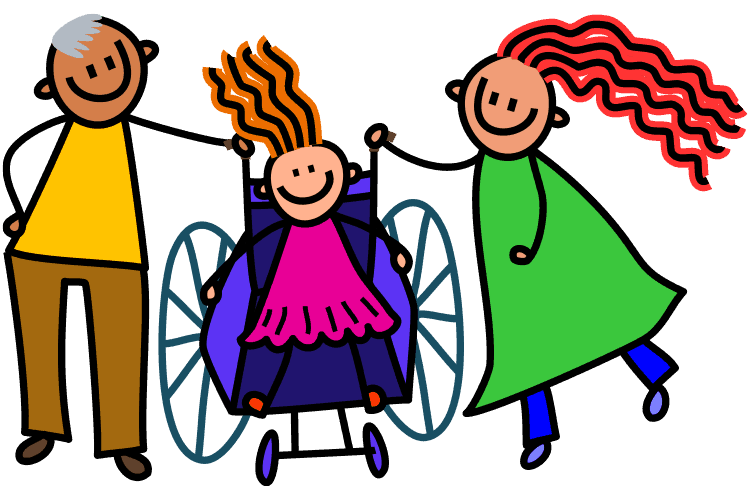What is Spina Bifida?
Spina bifida is a birth defect where there is incomplete closing of the backbone and membranes around the spinal cord. There are three main types:
spina bifida occulta
meningocele,
myelomeningocele (MM).
This blog will focus on the most severe form MM. As a result of the bones not growing properly the nerves don’t reach their usual destinations in the legs, bowel and bladder. These nerves allow movement, feeling, and control of the bowels and bladder. Instead, the nerves grow through an opening in the bones and are visible at birth on the baby’s back.
What causes spina bifida?
We don’t usually know what causes spina bifida, but there is a link with folic acid in the mother. Women with low folic acid are at higher risk for having a baby with spina bifida. Folic acid should be taken by any woman who is planning to become pregnant. Other known causes of spina bifida are diabetes in the mother, genetic causes, a history of spina bifida in the family, and certain medications.
What problems can my child have?
Children with spina bifida can have different issues depending on which nerves were involved, but in general, spina bifida can cause:
- Weakness or paralysis of the legs
- Loss of feeling in the legs or lower half of the body
- Problems with the feet, knees, hips, legs, or spine
- Difficulty controlling the bladder or bowel
- Problems with learning, attention, or memory
-
Many children with spina bifida have hydrocephalus which is the abnormal build-up of fluid in the brain caused by blockage. This is very common in spina bifida and is often treated by a neurosurgeon who places a drainage tube called a shunt.
What bladder and bowel problems will my child have and why?
* Most children with spina bifida have problems with bowel and bladder control because the nerves that go to those structures are damaged.
* Children often need assistance emptying their bladder several times a day to avoid bladder infections and kidney damage. * This is done using a small tube that is inserted into the bladder several times a day to allow drainage. It is called catheterisation and parents are taught how to do this in the clinic.Your child will eventually learn to do this alone.
* A daily bowel program may be needed to avoid constipation and to keep your child on a regular schedule.
Are there different levels of severity?
You may hear the medical team mention some letters and numbers to describe your child’s spina bifida.
For example L4 spina bifida. This is the name for the area of the spinal cord where the nerve damage starts. In this case it is at the 4th lumbar vertebra which we name L4. By naming the vertebra we can quickly communicate which muscles are probably involved and that helps us understand a lot about how your child will move.
How is spina bifida treated?
- Treatment for spina bifida is life-long.
- The spine defect is closed in the first few days of life. If a shunt is needed for associated hydrocephalus this is reformed by the neurosurgeon.
- Every child with spina bifida is different depending on where the spine defect occurs, and so treatment is carefully customised for each child.
- Therapy may be provided for a limited time to help the child move better and learn important skills. Both physiotherapy and occupational therapy can be important especially early on in diagnosis and through life to monitor your child and help them become as independent as possible. Therapy may help some children get stronger and learn to walk better and become more independent with everyday functional tasks.
- Crutches, walkers and leg braces (orthotics) may be needed to help with walking. The ability to walk is based on the nerves that were affected by the spinal defect that occurred before birth. Some children require a wheelchair. Your physiotherapist and doctors can assess and advise what your child requires.
-
A tube called a catheter may be recommended to help empty the bladder. This helps prevent infections and kidney damage. Your child is likely to be seen regular by the specialist urology and nephrology teams.
-
Surgery may be needed to fix problems with your child’s spine or legs. Your child will need to be seen regular by the orthopaedic team.
-
Testing for learning problems may be advised. Some children with MM have learning needs others aren’t affected. It is important to ensure your child is assessed if required.
How can physiotherapists and doctors help my child?
Spina bifida cannot be cured. The nerve damage is permanent, but there are many things that can be done to help your child live as independent life as possible.
* Your child may need to use assistive devices to help your child walk or they may be issues with a Wheelchair.
* Orthotics (leg braces) may be required to help your child walk alongside assistive devices such as crutches or walkers.
The doctors and therapists will be able to give you advice about your child’s options.
Children in the UK are seen regularly in a specialist spina bifida interdisciplinary clinic. It is extremely important that your child is seen often especially due to potential bladder and bowel problems. It is also extremely important that they are closely monitored as they grow for any signs and symptom changes in muscle strength, sensation and muscle tone. As changes in these symptoms can be signs of spinal cord tethering which will require a thorough neurosurgical assessment and possible surgery.
Who is likely to be involved in my child’s ongoing management?
This is not a full list and will vary depending on your local spina bifida service:
-
Physiotherapist
-
Neurologist or Consultant paediatrician in neurodisability
-
Paediatricians
-
GP
-
Occupational Therapist
-
Neurosurgeon
-
Doctors and clinical nurse specialist (urology, nephrology)
-
Orthopaedic Surgeon
-
Educational Psychologist and SENCO’s
-
Orthotist
-
Wheelchair services
____________________
We can assess and treat children at your home, school, gym or anywhere you feel your child would be most comfortable.
Contact us for an informal chat to ask any questions specific to your child. https://wanderlusttherapyforkids.com/contact/
We have children’s physiotherapists who are specialists working with children with Spina Bifida within Surrey, Sussex, Kent, Hampshire and parts of London.


